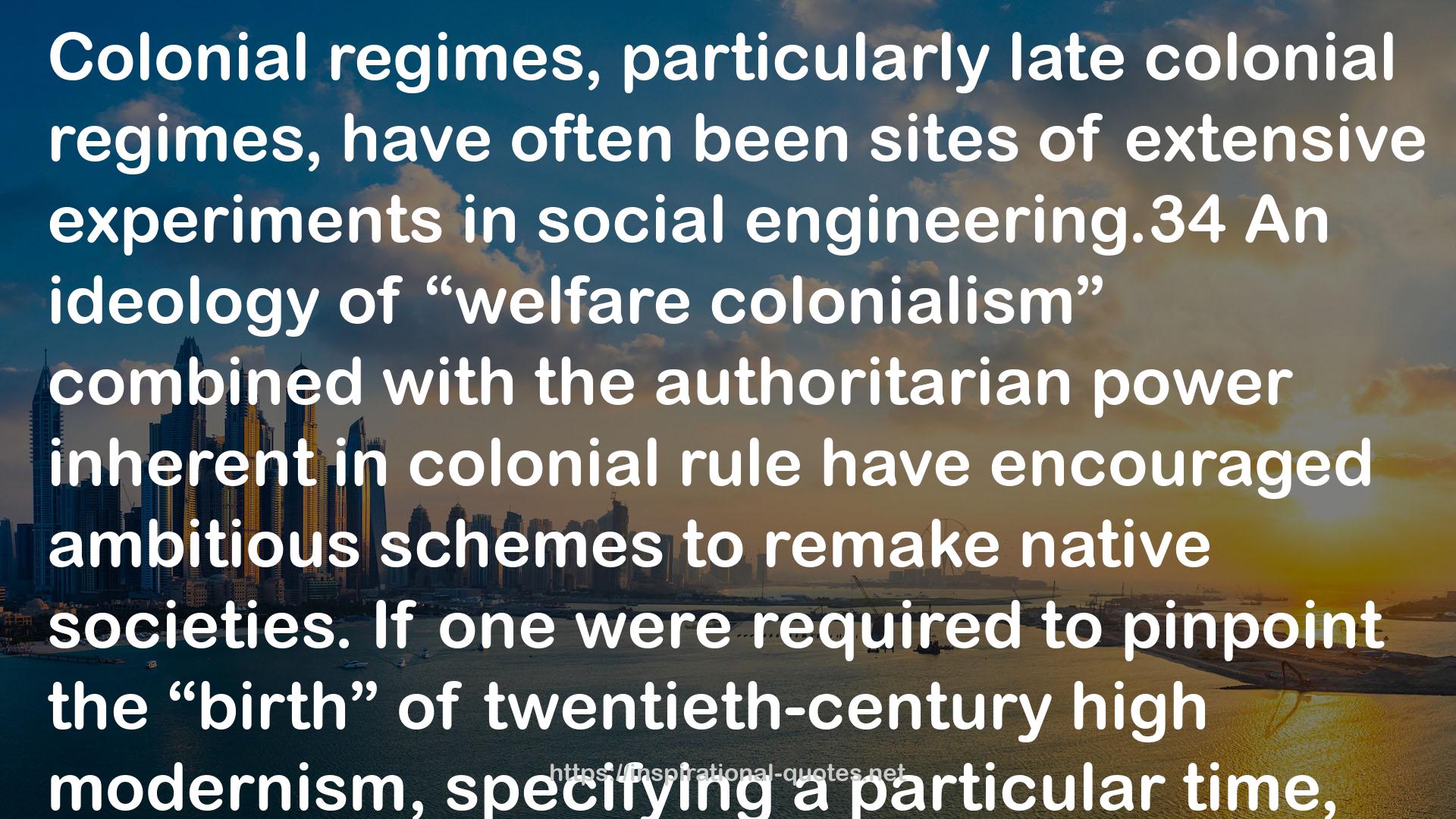" Colonial regimes, particularly late colonial regimes, have often been sites of extensive experiments in social engineering.34 An ideology of “welfare colonialism” combined with the authoritarian power inherent in colonial rule have encouraged ambitious schemes to remake native societies. If one were required to pinpoint the “birth” of twentieth-century high modernism, specifying a particular time, place, and individual—in what is admittedly a rather arbitrary exercise, given high modernism’s many intellectual wellsprings—a strong case can be made for German mobilization during World War I and the figure most closely associated with it, Walther Rathenau. German economic mobilization was the technocratic wonder of the war. That Germany kept its armies in the field and adequately supplied long after most observers had predicted its collapse was largely due to Rathenau’s planning.35 An industrial engineer and head of the great electrical firm A.E.G (Allgemeine Elektricitäts-Gesellschaft), which had been founded by his father, Rathenau was placed in charge of the Office of War Raw Materials (Kriegsrohstoffabteilung).36 He realized that the planned rationing of raw materials and transport was the key to sustaining the war effort. Inventing a planned economy step by step, as it were, Germany achieved feats—in industrial production, munitions and armament supply, transportation and traffic control, price controls, and civilian rationing—that had never before been attempted. "
― James C. Scott , Seeing Like a State: How Certain Schemes to Improve the Human Condition Have Failed
